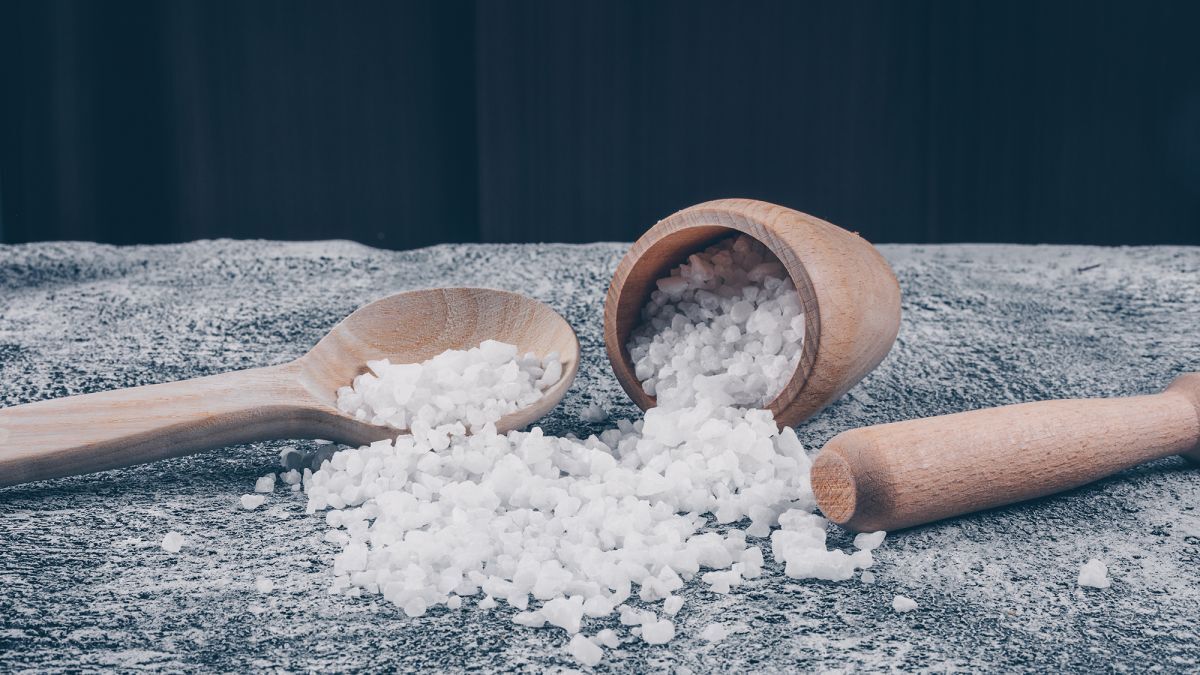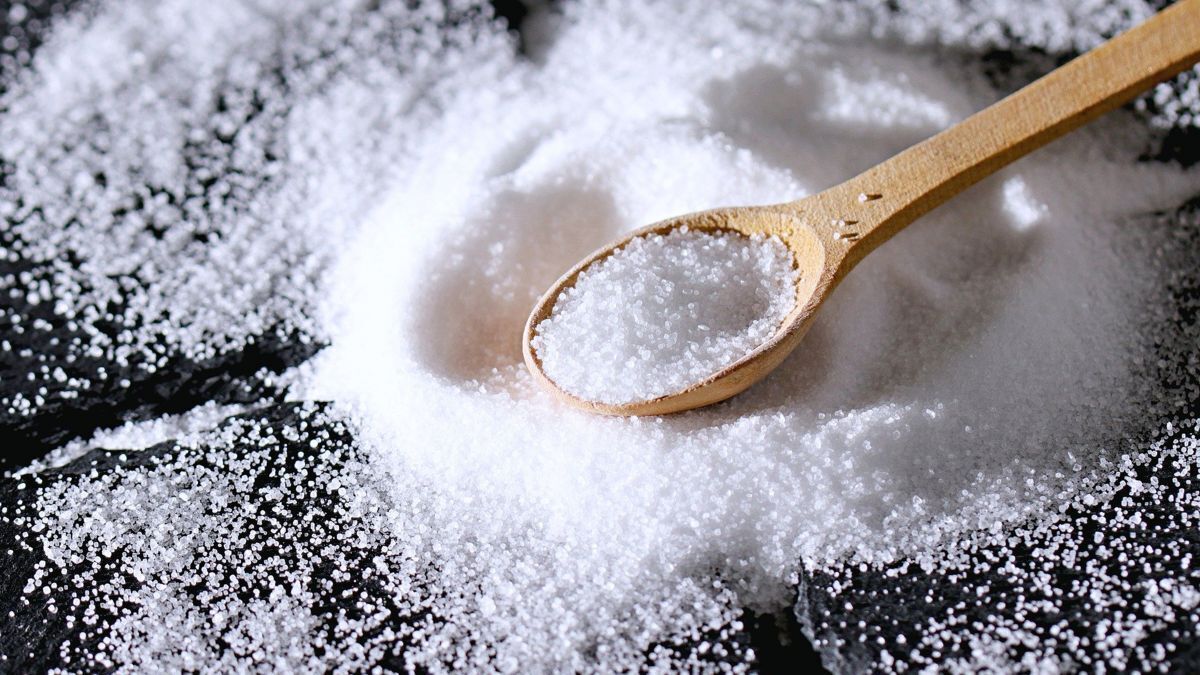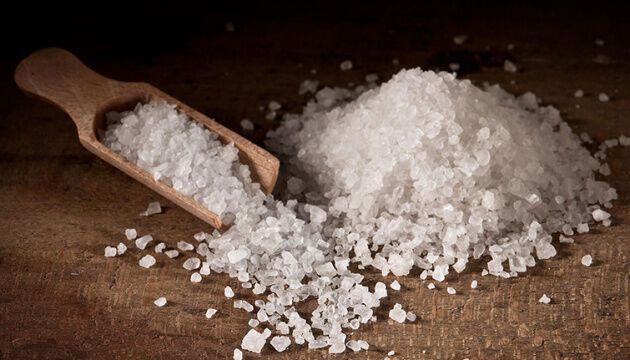News
What happens to the body if you give up salt: 14 consequences that will surprise you
Salt is one of the most important ingredients when it comes to cooking delicious food. But consuming too much salt can pose a wide range of health risks.
If you give it up, there are at least 14 consequences to your body that will surprise you. The List writes about it.
Blood pressure will decrease
According to Dr. Nikolai Djordjevic, there is an inextricable link between how much salt you eat and how high your blood pressure is.
"Sodium is very closely related to hypertension. When you consume too much salt, your body tries to regulate it by retaining more water inside your body," he explained.
"This puts a lot of pressure on the circulatory system, which instantly increases blood pressure. And that's not good. If you stop eating salt, your blood pressure will go down.
Your kidneys will start working better
The amount of sodium you eat affects more than just your blood pressure. According to Djordjevic, salt can cause serious damage to other organs in your body.
"The kidneys are also affected by a large amount of sodium. There is a direct link between kidney dysfunction and salt intake. In addition, hypertension damages many organs, and the kidneys are often the first to fail," he explained.
The risk of kidney stones will decrease
According to Dr. Anthony Corey, too much salt increases the risk of developing kidney stones.
Kidney stones are small, hard deposits made up of salt and minerals that form inside your kidneys. But just because they are small doesn't mean they don't make a statement. They can be excruciatingly painful.
"By reducing our salt intake, we reduce the likelihood of developing kidney stones and kidney disease," added Kouri.
Will disappear bloating
According to Dr. Nikolai Djordjevic, salt may have something to do with bloating.
"Since sodium is one of the causes of water retention, by reducing your salt intake, you actually release more water from your body. You will feel less bloated and swollen," he explained. Increase energy
According to registered dietitian Diane Garillo-Cleland, salt can also reduce your energy levels and make you feel exhausted.
"Some people may feel more energized when they reduce their salt intake because of reduced water retention, which makes them feel lighter and potentially more energized," she explained.
Improve taste perception
The idea of eliminating salt from your diet seems grim. After all, it means giving up a lot of delicious foods, including fast food, processed foods, sausages, and potato chips.
But there is good news, Garillo-Cleland assures us that any feeling of salt deprivation will be temporary.
"Although the initial reduction in sodium intake can be difficult, your taste buds will actually adjust to the lower threshold. Many people who have reduced their sodium intake say they can't tolerate the salty foods they used to eat after they've switched to a healthier amount of sodium," the nutritionist explained.
Thirst to decrease
"When we eat a lot of sodium every day, we feel thirsty. That's because we need water to balance the sodium level in our body," says Dr. Anthony Cawry.
Of course, if you reduce the amount of sodium you consume, you will feel less thirsty.
"By consuming less salt, our bodies don't crave water as much because they don't need to normalize sodium levels as much," added Dr. Koury.
Reducing headaches
Salt can be a culprit in headaches.
"Sodium has a direct effect on blood vessels, which can cause headaches. Studies show that reducing sodium intake resulted in fewer headaches than participants who maintained their sodium intake," said trainer Caleb Backe.
Reduced risk of stroke and heart attack
According to Dr. Amin Yehya, a cardiologist at the Piedmont Heart Institute, if your blood pressure is high enough to cause hypertension, your risk of heart disease and stroke increases.
"Globally, 54 percent of strokes and 47 percent of heart disease are associated with hypertension. Excess sodium has an effect independent of blood pressure, contributing to left ventricular hypertrophy (a problem with the pumping function of the main chamber of the heart), as well as fibrosis (thickening and scarring) of the heart and arteries," he explained.
The doctor emphasized that eating too much salt is harmful to the heart, period.
Chances of getting stomach cancer are decreasing
According to the World Cancer Research Fund, stomach cancer is the fifth most common cancer in the world. And while the incidence rate is fortunately declining, it is still important for people to be vigilant about how to prevent stomach cancer through diet and lifestyle.
It is recommended to limit sodium intake to five grams or less each, as eating salty foods such as meat and vegetables can cause stomach cancer. That's why in regions where salting and fermentation are used to preserve traditional foods, such as Korea and Japan, the incidence of the disease is much higher than in parts of the world where traditional foods are kept refrigerated.
The risk of mortality is reduced
"Studies have shown that reducing sodium intake by 1,200 mg per day can lead to 120,000 fewer cases of coronary heart disease, 66,000 fewer strokes, 99,000 fewer myocardial infarctions, and 92,000 fewer deaths," said Dr. Amina Yehya.
In addition, there are other studies that show that if people try to stop eating salt and reduce their intake to about 1500 mg per day, up to 500,000 people will be spared cardiovascular deaths within ten years.
You can lose weight
If you stop eating salt, you'll likely notice that you lose a few pounds right away. Most likely, you lose weight through water, at least at first, because salt makes your body retain water.
When you stop eating salt, you won't go to the toilet often
Chances are, if you're on a high-sodium diet, you'll find yourself using the restroom more often than people with a lower salt intake. But, according to registered dietitian Erin Palinsky-Wade, it's not because of food.
"Drinking more sodium alone does not increase urination, but it can increase thirst - and the more you drink, the more likely you are to pass more urine," the nutritionist explained.
Therefore, if you stop eating salt, you will spend less time going to the bathroom.
Your bones will thank you
In addition to affecting the organs and circulatory system, eating too much salt can damage the skeleton. In particular, women who eat a high-salt diet are at increased risk of bone fracture after menopause.
"Excessive sodium intake seems to be a risk factor for bone fragility. Therefore, it is important to take into account excessive sodium intake in the dietary therapy of osteoporosis," said Dr. Kiyoko Navata.
As OBOZ.UA wrote:
- Earlier, experts told what will happen to the body if you give up alcohol for a month.
- Read more about why early recovery can be beneficial for mental activity, body, and general well-being here.
Only verified information is available on our Telegram channel OBOZ.UA and in Viber. Don't fall for fakes!






























